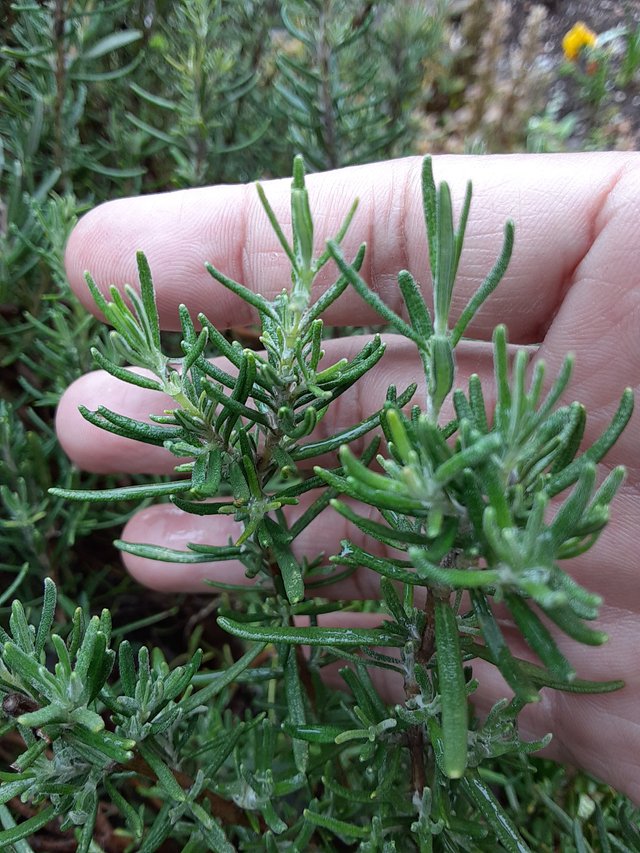
Salvia rosmarinus, commonly known as rosemary, is a perennial evergreen shrub in the Lamiaceae family that is native to the Mediterranean region. Rosemary is known for its aromatic leaves, which are used in cooking, perfumery, and medicine.
The leaves of Salvia rosmarinus are needle-like and green on the upper surface, with a white underside. They are strongly aromatic, with a piney, camphoraceous scent. The leaves contain a number of volatile oils, including rosmarinic acid, carnosic acid, and ursolic acid. These compounds have antioxidant, anti-inflammatory, and antimicrobial properties.
Rosemary leaves have been used for centuries for their medicinal properties. They have been traditionally used to treat a variety of ailments, including headaches, stomachaches, respiratory problems, and muscle pain. More recently, research has shown that rosemary may also have benefits for memory, cognitive function, and cancer prevention.
Here are some of the common uses of rosemary leaves:
- Culinary herb: Rosemary leaves are a popular seasoning in Mediterranean cuisine. They can be used fresh or dried, and they add a distinctive flavor to soups, stews, roasted meats, and vegetables.
- Aromatherapy: Rosemary essential oil is used in aromatherapy for its invigorating and uplifting effects. It can be diffused in the air, added to bath water, or applied to the skin.
- Medicine: Rosemary leaves have been used in traditional medicine for centuries to treat a variety of ailments. More recently, research has shown that rosemary may have benefits for memory, cognitive function, and cancer prevention.
If you are interested in using rosemary leaves, it is important to note that they can be toxic in high doses. It is also important to avoid using rosemary if you are pregnant or breastfeeding.
Ref.:
 |  |
Upvoted! Thank you for supporting witness @jswit.
Downvoting a post can decrease pending rewards and make it less visible. Common reasons:
Submit